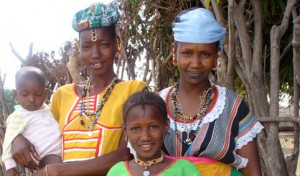
Good intentions strike again. Today’s New York Times op-ed page features a tragic account of how the Dodd-Frank Wall Street reform act of 2010—no doubt conceived with good intentions by American politicians—is devastating mining towns in eastern Congo. In an effort to increase transparency in sourcing, the act “requires public companies to indicate what measures they are taking to ensure that minerals in their supply chain don’t benefit warlords in conflict-ravaged Congo.” This way, if companies are manufacturing products that contain so-called ‘conflict minerals,’ consumers will know. Sounds like a good idea, right? Not exactly.
As the column points out, the unintended consequences have been disastrous. Many mining and smelting companies have stopped buying from the Congo, creating an effective embargo on minerals from this country. As a result, local miners are out of work, and communities are facing greater poverty than in previous years. Children are dropping out of school; women who can’t afford health clinic fees are dangerously giving birth at home; and families are going hungry. In fact, in a perverted way, the warlords themselves are benefiting from the effects of this legislation, while individuals on the ground are starving. As the article reveals, alternative solutions to the problem of warlords do exist and these solutions would not have created this tragedy. Instead, well-meaning individuals, living thousands of miles away from a problematic reality and believing they know what is best, have caused new and avoidable suffering.
Reading this article, I immediately thought of how it contrasted so spectacularly with my experience traveling with AJWS this summer to Senegal, as part of AJWS’s Rabbinical Students’ Delegation. The trip, organized in partnership with longtime AJWS grantee Tostan, highlighted the power of community-based approaches to development that have had deep and lasting success precisely because they were not conceived of and implemented by well-intentioned Westerners. They were conceived by local community members themselves. The Community Education Program that Tostan runs in villages around the country trains local community members in critical skills such as problem solving, mathematical literacy, and program management—and then supports the establishment of a Community Management Committee whose commissions work on local issues based on what community members decide are priorities and needs. Using the skills developed through Tostan’s trainings, community members work to find solutions to the problems they have identified. This local, community-based methodology has resulted in mind-blowing success stories, including the near elimination of Female Genital Cutting in Senegal; ending child/forced marriage; and increasing rates of education, especially among girls.
Wisdom from Jewish tradition offers us a lens to reflect on these two vastly different approaches to entrenched problems. Interestingly, the Talmud teaches that someone who has lived in a community for 30 days becomes obligated to give to the tamchui, one of the communal funds that existed in the rabbinic period, from which food was distributed to the local poor. After living in the community for three months, an individual becomes obligated to contribute to the kuppah, another communal fund that provides monetary assistance. Only someone who buys a home, signifying her intention to become part of that community, becomes obligated to contribute to these funds right away (Babylonian Talmud, Tractate Bava Batra 8a). One way of reading this mandate is that the obligation—and perhaps, we might say, the right—to contribute to local solutions comes only when we have located ourselves firmly as a member of a particular community and have developed a deep understanding of the particular community’s needs. Until that point, we are merely outsiders, and it is irresponsible of us to be active in the local economic and political system.
While many development workers no doubt spend more than 30 or 90 days in a given country, their intention is generally not to become members of that community, but rather to live there for the length of their contract or assignment. Even more so for American politicians, who are offering legislation without much knowledge of local realities or needs. The story in international development has for a long time been one of Western-imposed ‘solutions’ that ultimately fail due to lack of local knowledge, empowerment, or engagement with the community. As today’s article and Tostan demonstrate, it’s time for a new story.
Shuli Passow is entering her second year as a rabbinical student at the Jewish Theological Seminary. Her passion for integrating Jewish thinking and social change work was sparked in 1996, when she traveled to Honduras with one of AJWS’s first volunteer summer trips.
AJWS’s work in countries and communities changes over time, responding to the evolving needs of partner organizations and the people they serve. To learn where AJWS is supporting activists and social justice movements today, please see Where We Work.

